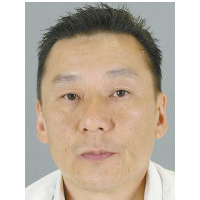You Have the Right to Remain Silent, but Anything You Don't Say Might be Used Against You
 Richard Tom
Richard Tom
Richard Tom had the right to remain silent in the back seat of the Redwood City police car in 2007 after his speeding Mercedes slammed into a Nissan, killing an 8-year-old passenger—and he did.
But prosecutors used that silence to convict him of manslaughter with gross negligence, telling a jury that his failure to inquire about the conditions of passengers indicated a “particularly offensive” lack of regret for his actions. Tom's lawyers objected to having his Miranda rights turned against him and the state First District Court of Appeal reversed the conviction.
Last Friday, the California Supreme Court reinstated the conviction on a 4-3 vote. Justice Marvin Baxter, writing for the majority, said Tom did not explicitly invoke his right to remain silent until later, so anything he didn't say before that could be used against him in a court of law.
Tom's attorney, Mark Zilversmit, told the San Jose Mercury News, “It's a very dangerous ruling. If you say anything to the police, that can be used against you. Now, if you don't say anything before you are warned of your rights, that too can be used against you.”
Zilversmit said he is considering an appeal to the U.S. Supreme Court. If he follows through, he will be pleading his case to a court that ruled 5-4 in Salinas v. Texas (pdf) last year that under some circumstances silence during a police interrogation can be used against a suspect.
Tom was sentenced to seven years in prison and ordered to pay $147,000 in restitution for the accident. The state high court acknowledged, but did not consider, conflicting evidence about the speed Tom was traveling and allegations that he was drunk at the time of the accident.
Justice Baxter, a conservative Republican appointee who is retiring in January after 24 years on the bench, rejected arguments that the district attorney prejudiced the accused by denying Tom his Fifth Amendment right to remain silent.
Baxter quoted what the district attorney told the jury: “I‘m not saying that he has to say sorry as an expression of his guilt or as some kind of confession, but simply as an expression of his regret. Look, I‘m sorry those people were hurt. Not once. Do you know how many officers that he had contact with that evening? Not a single one said that, hey, the defendant asked me how those people were doing. Why is that? Because he knew he had done a very, very, very bad thing, and he was scared. He was scared or—either that or too drunk to care.”
Baxter said there were basically two exceptions to the rule that a person must explicitly claim the right to remain silent: on the witness stand in court and when “governmental coercion makes his forfeiture of the privilege involuntary.” The justice said neither of those two was applicable in this case.
He suggested that there are circumstances under which post-arrest silence could not be used against a defendant in court, but those details “were beyond the scope of this review” and should be hashed out in the lower courts.
The right to remain silent was enshrined in the law in the landmark 1966 U.S. Supreme Court ruling Miranda v. Arizona. The reading of Miranda rights to arrested suspects has been a staple of cop shows ever since, although the courts have chipped away at those rights over the years.
Justice Goodwin Liu wrote in dissent that the court violated “common sense expectations” that remaining silent after being placed under arrest isn't an obvious assertion of one's right to remain silent. “Often the best way not to incriminate oneself is to say nothing.”
Justice Liu also quoted the district attorney's courtroom argument that Tom “was obsessed with only one thing, that is, saving his own skin.” By the prosecutor's own account, Tom was striving to avoid incriminating himself by invoking his constitutional right to remain silent.
Liu wondered how Tom was supposed to actively claim his right as he sat alone in the back of a police car. “To whom and how should he have invoked the Fifth Amendment privilege? Was he required to approach an officer on his own initiative and blurt out, 'I don‘t want to talk?' ”
Liu wrote: “In sum, a suspect who has been arrested or otherwise taken into custody has a right under the Fifth Amendment to remain silent, whether or not Miranda warnings have been given.”
–Ken Broder
To Learn More:
Court: Silence Can Be Used Against Suspects (by Paul Elias, Associated Press)
Redwood City Man's Conviction in Fatal Crash to Remain in Doubt (by Howard Mintz, San Jose Mercury News)
Supreme Court Rules a Suspect’s Silence during Police Interrogation Can be Used against Him (by Noel Brinkerhoff and Danny Biederman, AllGov)
The People v. Richard Tom (California Supreme Court) (pdf)
- Top Stories
- Controversies
- Where is the Money Going?
- California and the Nation
- Appointments and Resignations
- Unusual News
- Latest News
- California Forbids U.S. Immigration Agents from Pretending to be Police
- California Lawmakers Urged to Strip “Self-Dealing” Tax Board of Its Duties
- Big Oil’s Grip on California
- Santa Cruz Police See Homeland Security Betrayal in Use of Gang Roundup as Cover for Immigration Raid
- Oil Companies Face Deadline to Stop Polluting California Groundwater





